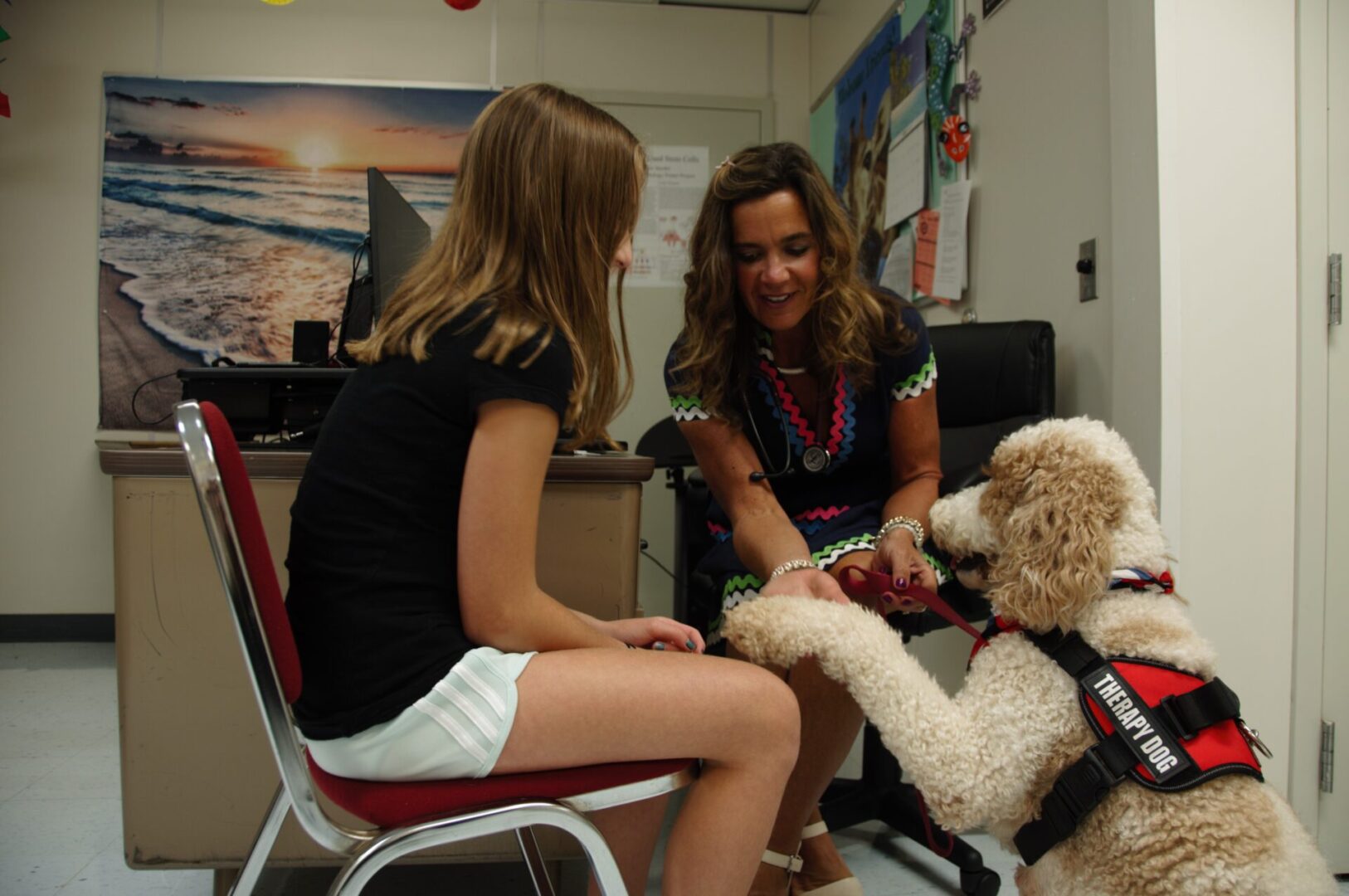STATE COLLEGE — It’s that time of year when students return to the classroom.
At Park Forest Middle School in State College, it also means the return of a 2 1/2-year-old goldendoodle named Lucy.
Lucy became a certified therapy dog in the spring of last year and has been attending school a few days a week with her owner, Allison Snyder, a certified school nurse.
“Her temperament is amazing, and she is just so sweet and loving. I wanted to share her with other people,” Snyder said.
Snyder decided to certify Lucy after noticing an increase in therapy dogs being utilized in places like nursing homes. She believed Lucy would be perfect for the job. According to the U.S. Centers for Disease Control and Prevention, therapy animals are used in more than half of the countries’ hospices.
Having a therapy dog has been particularly beneficial in this middle school due to the pandemic and the students’ age group, according to Snyder.
“They were used to wearing masks and they were used to doing a lot of remote work, so when we all came back in person, the counseling staff and our administration noticed students were feeling more anxious, more stressed and just a little uncomfortable,” Snyder said.
Middle school presents various pressures for students, and Snyder noted that the COVID-19 pandemic added to that stress. However, Lucy has been a calming presence during these stressful times. Studies from UCLA Health, Mental Health America and the National Center for Biotechnology Information show that interacting with animals can release hormones such as oxytocin and serotonin, which help people relax and can even lower blood pressure.

Snyder sees up to 50 kids a day for illness or injury as well as anxiety and daily stressors. Students will often come to her office when they just need a moment or a safe space. Lucy’s presence benefits not only the students but also the faculty and staff.
“People come in here, and they spend time with Lucy. She’s usually sitting here in my office, and they just pet her. After a few minutes of petting Lucy, they relax, open up and discuss their problems,” Snyder said. “It’s a positive experience for Lucy, who loves interacting with people. It’s also beneficial for the students and staff, offering them a sense of calm and reassurance while providing a distraction from the pressures they experience at school.”
Recent studies from NCBI and We Are Teachers indicate that having therapy dogs in a school setting fosters a positive learning environment and reduces students’ stress levels. Research suggests that children are more likely to focus and concentrate on assignments when feelings of worry and tension are alleviated in the classroom.
“Therapy dogs can help students who have trouble reading. I like to go into classrooms where kids are struggling academically, and they can read to Lucy. That way they’re not feeling the pressure of reading to a teacher or in front of their peers,” Snyder explained. “They can sharpen their reading skills just by reading to Lucy.”
Snyder mentioned that Lucy has spent time in the school’s emotional support autistic classroom, where she’s connected well with the students. Lucy has also been used to help students cope with loss and grief. While PFMS is Lucy and Snyder’s home base, Snyder aspires to extend Lucy’s presence across the district as a resource.
As the school year begins, Lucy and Snyder are prepared. Lucy will accompany Snyder to her nurse’s office one to two days a week, continuing to provide healing, comfort and affection to the students and staff at PFMS.
“I just can’t wait to do that again this year,” Snyder said. “It’s just a great thing for them to feel reassured with Lucy.”



